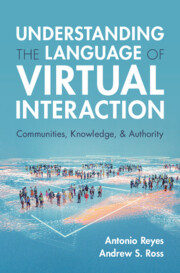Refine search
Actions for selected content:
379 results
Chapter 7 - Rational Powers and the ‘Fact of Reason’
-
-
- Book:
- The Aristotelian Kant
- Published online:
- 15 December 2025
- Print publication:
- 22 January 2026, pp 180-206
-
- Chapter
- Export citation
2 - Self-Determination through Regional Authority
-
- Book:
- New Regional Authorities
- Published online:
- 17 December 2025
- Print publication:
- 08 January 2026, pp 33-61
-
- Chapter
- Export citation
1 - Changing Approaches to Interference in the Global South
-
- Book:
- New Regional Authorities
- Published online:
- 17 December 2025
- Print publication:
- 08 January 2026, pp 1-32
-
- Chapter
- Export citation
7 - Regional Authority and Self-Determination in International Politics
-
- Book:
- New Regional Authorities
- Published online:
- 17 December 2025
- Print publication:
- 08 January 2026, pp 170-184
-
- Chapter
- Export citation

New Regional Authorities
- Self-Determination and the Global South
-
- Published online:
- 17 December 2025
- Print publication:
- 08 January 2026
11 - Channel Power
- from Part III - Channel Coordination of Relationships
-
- Book:
- Marketing Channel Management
- Published online:
- 26 November 2025
- Print publication:
- 04 December 2025, pp 227-245
-
- Chapter
- Export citation
4 - A Conformity Theory of Chilling Effects
- from Part II - A New Understanding
-
- Book:
- Chilling Effects
- Published online:
- 20 November 2025
- Print publication:
- 20 November 2025, pp 49-66
-
- Chapter
- Export citation
3 - Motive
-
- Book:
- Killing Machines
- Published online:
- 23 October 2025
- Print publication:
- 06 November 2025, pp 71-126
-
- Chapter
-
- You have access
- Open access
- HTML
- Export citation
Chapter 9 - Print Culture and New Fictional Imagination in Colonial Egypt
- from Part II - Readers and Audiences
-
-
- Book:
- African Literature in Transition
- Published online:
- 23 October 2025
- Print publication:
- 06 November 2025, pp 184-201
-
- Chapter
- Export citation
11 - Mobility and Authority
-
- Book:
- Politics as Exchange
- Published online:
- 23 October 2025
- Print publication:
- 06 November 2025, pp 182-206
-
- Chapter
- Export citation
10 - The Scope of Authority
-
- Book:
- Politics as Exchange
- Published online:
- 23 October 2025
- Print publication:
- 06 November 2025, pp 164-181
-
- Chapter
- Export citation
4 - The Characteristics of Authority
-
- Book:
- Politics as Exchange
- Published online:
- 23 October 2025
- Print publication:
- 06 November 2025, pp 50-70
-
- Chapter
- Export citation
1 - Dictionaries in the History of English
- from Part I - The Transmission of English
-
-
- Book:
- The New Cambridge History of the English Language
- Published online:
- 23 October 2025
- Print publication:
- 23 October 2025, pp 35-57
-
- Chapter
- Export citation
The Subjects of Tort Law
-
- Journal:
- Canadian Journal of Law & Jurisprudence , First View
- Published online by Cambridge University Press:
- 08 September 2025, pp. 1-29
-
- Article
-
- You have access
- Open access
- HTML
- Export citation

Understanding the Language of Virtual Interaction
- Communities, Knowledge, and Authority
-
- Published online:
- 05 September 2025
- Print publication:
- 25 September 2025
Virtuous Belief Outsourcing
-
- Journal:
- Episteme , First View
- Published online by Cambridge University Press:
- 01 September 2025, pp. 1-16
-
- Article
-
- You have access
- Open access
- HTML
- Export citation
3 - Heresiological Catalogues
- from Part I - Approaches and Evidence
-
-
- Book:
- The Cambridge Companion to Christian Heresy
- Published online:
- 17 July 2025
- Print publication:
- 31 July 2025, pp 54-73
-
- Chapter
- Export citation
1 - Theories and Definitions of Heresy
- from Part I - Approaches and Evidence
-
-
- Book:
- The Cambridge Companion to Christian Heresy
- Published online:
- 17 July 2025
- Print publication:
- 31 July 2025, pp 17-32
-
- Chapter
- Export citation
Chapter 9 - Self-Government and Law in the Crito and the Statesman
- from Part V - Reconciling between Freedom, External Authority, and Nature
-
-
- Book:
- Platonic Autonomy
- Published online:
- 07 August 2025
- Print publication:
- 31 July 2025, pp 193-215
-
- Chapter
- Export citation
1 - Frontiers
- from Part I - Practices of Space
-
- Book:
- Fractured Pasts in Lake Kivu’s Borderlands
- Published online:
- 17 July 2025
- Print publication:
- 31 July 2025, pp 51-84
-
- Chapter
- Export citation
